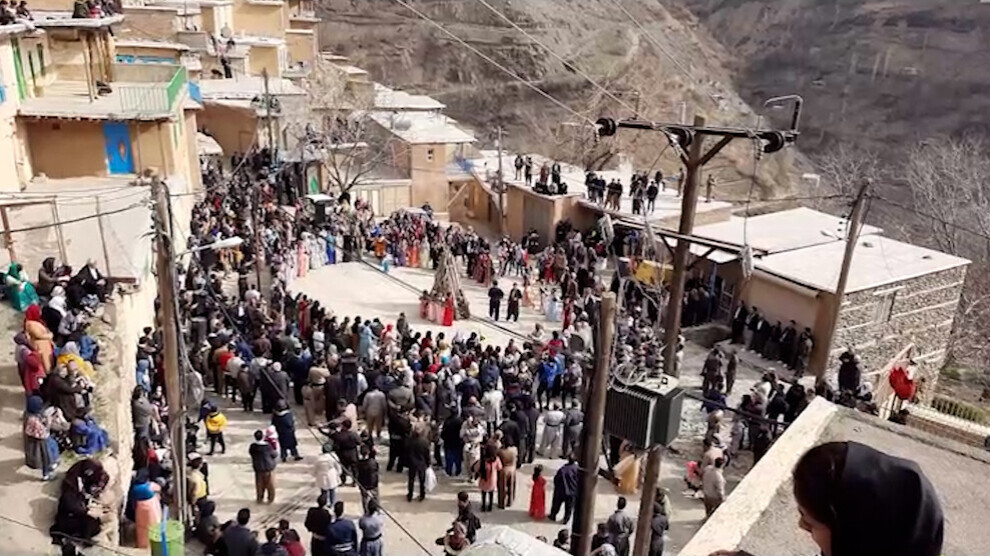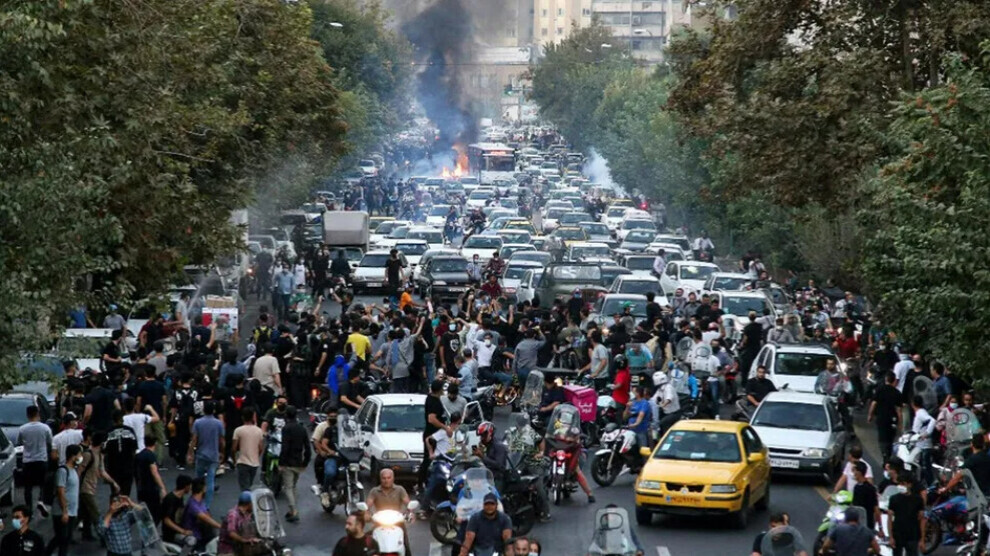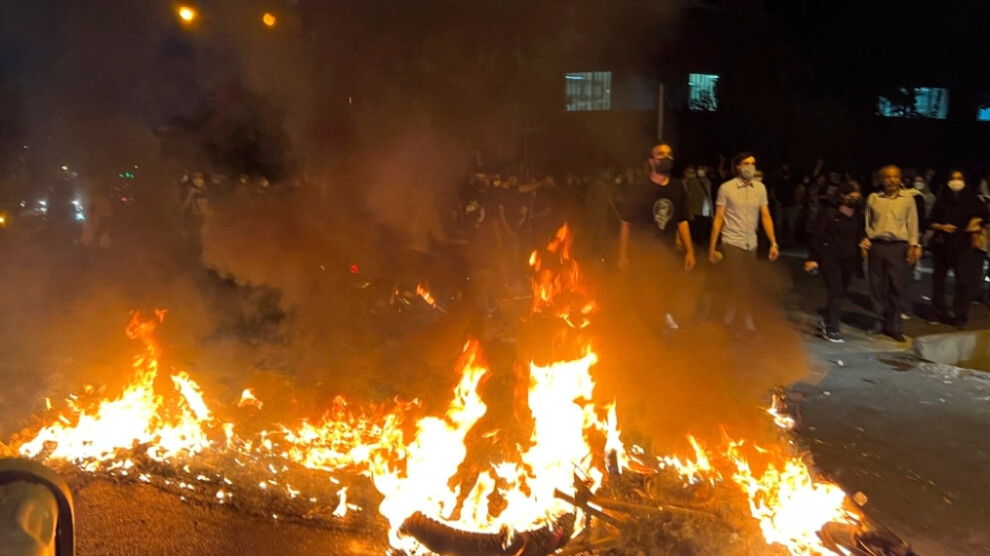 Zara Mohammadi: Face of Kurdish ResistanceA Kurdish teacher and activist who defied the Iranian regime by teaching her mother tongue to children has been sentenced to five years imprisonment. Her incarceration has turned her into a symbol of national pride and resilience for Kurds in Iran
Zara Mohammadi: Face of Kurdish ResistanceA Kurdish teacher and activist who defied the Iranian regime by teaching her mother tongue to children has been sentenced to five years imprisonment. Her incarceration has turned her into a symbol of national pride and resilience for Kurds in IranWhen the Iranian Islamic revolutionaries came to power, they repeatedly claimed that the Kurds were originally Iranian, along with other unrestrained declarations. Since 1979, clerics in Tehran have banned the Kurds from reading and writing in their mother tongue.
As a result, the overwhelming majority of Iranian Kurds cannot read and write in their native language. These cultural limitations resulted in the sentencing of Zara Mohammadi, a Kurdish language teacher, and civil society activist, to ten years in prison for simply trying to give her people access to a Kurdish education. While the sentence was reduced to five years, the incarceration is representative of Iran’s discriminatory policies towards its ethnic minorities including Ahwazi Arabs, Azerbaijani Turks, Baluchis, and Iranian Kurds.
The overwhelming majority of Iranian Kurds cannot read and write in their native language
29 years-old Mohammadi was first arrested in her hometown of Sanandaj (also known as Sine), on May 23, 2019. She is the director of the Nojin Socio-Cultural Association, an organization tasked with teaching the Kurdish language and literature.
In November 2019, the Iranian Human Rights organization reported that Mohammadi was “charged with national security offenses in relation to her civil society work empowering marginalized members of Iran’s Kurdish minority.”
Mohammadi had been subject to extensive interrogations by Iran’s Ministry of Intelligence Agency and spent about six months in prison where she endured questioning and torture forcing her to make false confessions. On December 2, 2019, she was released on a 700 million Iranian tomans (approximately $27,000) bail.
She was also charged with forming a group and committee that threatens the system’s stability and security and sentenced to five years in prison by a Sanandaj appeals court in February 2021.
“The five-year sentence by the appeal court without evidence, reason, and with no consideration to the truth is a total injustice,” Mohammadi shared on her Instagram on February 13, 2021.
Since Mohammadi’s incarceration, she has become a symbol of the resistance against Iran’s systematic cultural subjugation of Iranian Kurds and their national identity.
She has become a symbol of the resistance against Iran’s systematic cultural subjugation of Iranian Kurds
In a speech made in front of the court in Sanandaj, before turning herself to the Iranian authorities to serve her time, Mohammadi quoted the famous Kurdish poet, Qani, who is affectionately known as the poet of the oppressed. The line reads, “While in jail, my thinking on freedom will expand. Destruction is the fate of that enemy who has hope in prison.”
The Islamic Republic of Iran’s (IRI) constitution, written after the Islamic revolution of 1979 and amended in 1989, preserves the right of all nations and minorities to study and learn in their mother tongues. But in practice, that “right” is nothing more than worthless ink on lifeless paper. Mohammadi’s imprisonment is grave abuse of the IRI’s own constitution.
“The official language and script of Iran, the lingua franca of its people, is Persian. Official documents, correspondence, and texts, as well as textbooks, must be in this language and script. However, the use of regional and tribal languages in the press and mass media, as well as for teaching of their literature in schools, is allowed in addition to Persian,” reads Article 15 of the Iranian Constitution.
Article 19 stipulates, “All people of Iran, whatever the ethnic group or tribe to which they belong, enjoy equal rights; and color, race, language, and the like, do not bestow any privilege.”
During former Iranian President Hassan Rouhani’s race for the presidency in 2013, he pledged to officially authorize the teaching of Iranian mother tongues [Kurdish, Azeri, and Arabic] in public schools and universities. He won the election with the ethnic minority vote, including over 70 percent of the Iranian Kurdistan vote, but subsequently neglected his promises after being elected.
Persian is the only official language for education. Students have never been permitted to use their mother tongues
Three years later, in 2016, university classes in Kurdish and the Azeri-Turkish languages were rumored to be offered for the first time in Iran. But a Kurdish student who recently obtained his master’s degree at Payame Noor University told Inside Arabia that Persian is the only official language for education. Students have never been permitted to use their mother tongues.
“When Zara Mohammadi wants to teach the Kurdish language to fellow kids of Sanandaj, the IRI sentences her with six years imprisonment. Why? Because Mohammadi’s deed is outside IRI’s political system,” Kamal Chomani, a Kurdish writer living in Germany and a nonresident fellow at The Tahrir Institute for Middle East Policy, wrote in a Facebook post.
“Education in the mother tongue is a global right… postcolonial intellectuals consider… education in the mother tongue as the most crucial mechanism for combating colonialism and amending cultural distortion and intellectual aggression,” Chomani added.
Decades-long annihilation policies by Iran against the Kurdish language and culture have made it very difficult for Iranian Kurds to read and write in their mother tongue. Gradually, the language and its dialects are under the imminent threat of extinction.
Hawrami is a dialect of the Kurdish language and is spoken by some 23,000 people in Iran’s Kurdistan, western Iran, and in Iraq’s Hawraman area. In 2010, the United Nations Educational, Scientific and Cultural Organization (UNESCO) categorized the dialect as “definitely endangered.”
One year after President Ibrahim Raisi entered office, Iranian Kurds continue to be prosecuted and have their cultural, political, and economic rights denied.
Although the IRI may think that it has silenced Mohammadi – at least for the next five years – it never imagined that terribly inhumane measures against a young female teacher would make her a historic symbol of bravery and resistance for Iranian Kurds.
https://insidearabia.com/zara-mohammadi ... e-in-iran/




























